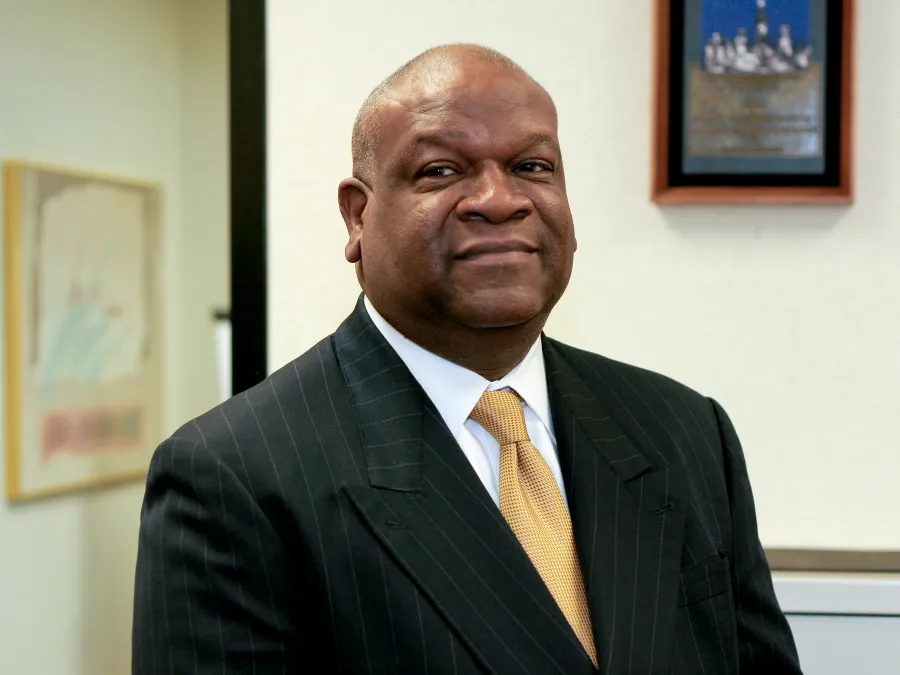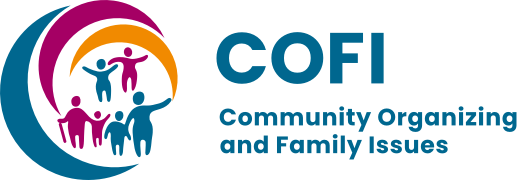James Bebley

COFI became a “trusted ally”
When parents and grassroots groups meet with school district administrators, the encounter can be antagonistic. After all, whatever motivated them to step up and be heard is likely something that they are upset about. But over time, such relationships can change, if both parties stick it out and continue working together. During the time James Bebley spent with community leaders reviewing and revising the district’s Uniform Discipline Code as the former General Counsel of Chicago Public Schools, he came to trust and respect POWER-PAC IL parents.
I met COFI parent leaders in the spring of 2004. I had been sent by the CPS CEO to work with community groups that wanted to weigh in on the review and revisions of the district’s student discipline policy. Most of them supported replacing zero tolerance disciplinary policy with restorative justice.
At first, those forum committee meetings—which were convened by Juvenile Court Judge Sophia Hall—were pretty contentious. CPS was walking into an environment where people didn’t trust the district and in some cases, didn’t have any experience with CPS. About half of the people there had had negative experiences with CPS. The whole dynamic was initially shaped by those with negative experiences.
I was there to take the heat. I was there to help steer the folks in the room toward how they could affect change and be part of the process.
But as the process continued over 15 or 16 months, the relationship between CPS and some of those organizations changed. They became more trusting. By the time we drafted revisions to the policy—and decided to rename it the Student Code of Conduct—COFI had become a trusted ally.
COFI already had credibility with a key CPS administrator who said, ‘This is a good group. These are good people.’ Aside from that, these are real people. A lot of people come to the board with agendas. They don’t have children or if they do, those children aren’t students in the system.
I arranged the first meeting between Lynn Morton and other POWER-PAC leaders and Board President Michael Scott. I also connected them with Mary Richardson-Lowry, who was appointed to chair the board after Scott died.
Mike Scott and Mary Lowry were both interested in parents. Scott wanted to hear from parents at board meetings. He preferred hearing what parents had to say over hearing from advocates. He was especially impressed with the work COFI and POWER-PAC had done to start a Peace Center at Brunson Elementary and run it with parent volunteers. He liked that. He liked the restorative justice philosophy.
COFI was part of a group that brought in people from Minnesota who were effective with restorative justice practices in schools. COFI also told us about some discipline issues with children who had disabilities that could be better handled with restorative justice. At first, follow up on this issue fell through the cracks, but then a small amount of money was sent to some schools to work on this.
When I have an issue with COFI, I pick up the phone and call them. I trust that the conversation will be confidential.
There are a number of reasons why I’m comfortable and trusting of COFI. I can reach out to Lynn or Ellen Schumer and use them as resources. They have a collaborative approach and they tell you what they are doing. I can follow-up with school principals and hear feedback on what COFI is doing. They have institutional integrity and list goals on their website.
Parent involvement is critical to the school district. It’s important that they speak up in their own voice. Too often, I see advocates purporting to speak for parents rather than parents speaking for themselves. Organizing tactics work against advocates.
But COFI’s approach is to say, “Hey, there’s a problem. Let’s figure out how to solve it.” And their parent leaders are the ones who give the perspective. As the Board’s legal counsel, I draft work from the district’s perspective. But I also have to consider what the parent and community perspectives are. I can get that from real parents who will say to me, “This is what’s going on with my kid.”


 COFI
COFI